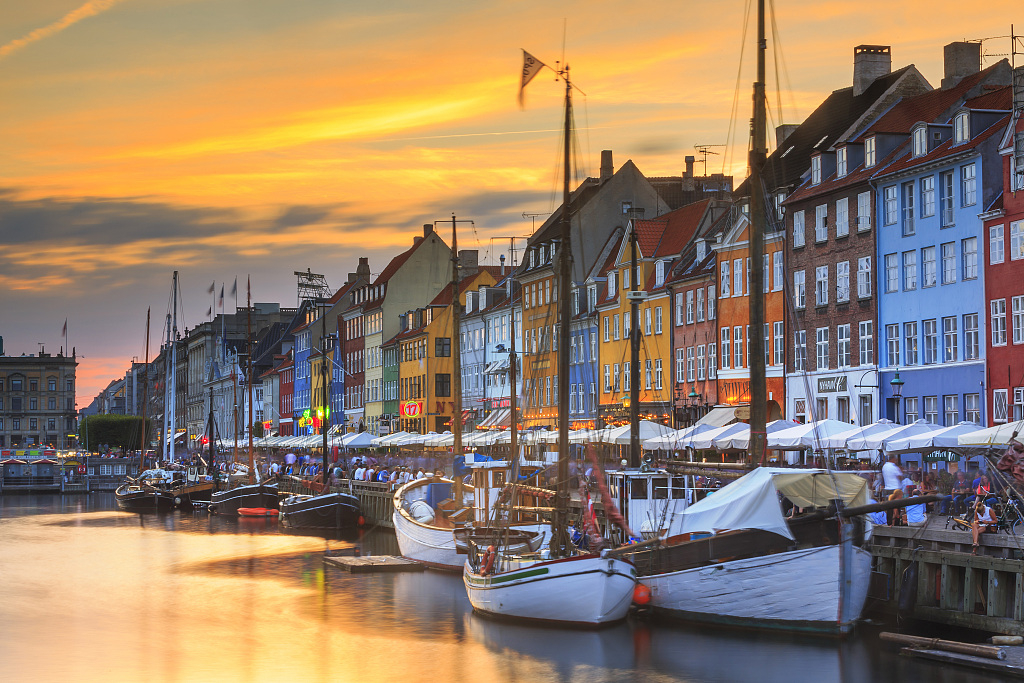
Opinion
08:11, 05-Jun-2019
Danish general election: Another test for the nationalist party
Liu Mingli

Editor's note: Liu Mingli is deputy director of the Institute of European Studies, China Institutes of Contemporary International Relations. The article reflects the author's opinion, and not necessarily the views of CGTN.
On June 5, Denmark will hold a general election, which is the first national election in the European Union since the European parliamentary elections last month. During those campaigns, there were widespread concerns about the extent to which far-right nationalist parties could rise and influence EU politics.
The results suggested that far-right parties are indeed on the rise, with the Group of the European People's Party (EPP) and Group of the Progressive Alliance of Socialists and Democrats (S&D) losing the majority of seats in the European Parliament.

Amalienborg Palace, Copenhagen, Denmark. /VCG Photo
Amalienborg Palace, Copenhagen, Denmark. /VCG Photo
But Denmark seemed to be an exception in the European elections, where the Danish People's Party, the far-right nationalist party in this country, suffered a crushing failure as it lost more than half of its votes and three of its four seats. Meanwhile, the Liberal Party, led by Prime Minister Lars Løkke Rasmussen, unexpectedly swept to victory. The surprising result leads people to wonder, will the Liberal Party continue to win, or will the Danish People's Party regain its momentum?
In Denmark's case, the Danish People's Party's defeat was not entirely unexpected. First, the party has been plagued by a scandal over the misuse of EU funds. With reference to the aftermath of the recent scandal in Austria, this kind of issue can lead to a serious political result. Second, other fringe parties also call for tougher immigration policies, which have weakened the liberals' appeal to voters. Moreover, the position of the Danish government on the immigration issue also tends to be tightened.
After 2015, the number of people applying for asylum in Denmark has been on the decline, which has weakened the advantage of the Danish People's Party. Third, the issue of migrants and refugees is not the only focus of the election. Environment and climate change are also of great concern to voters. The party has failed to make an attractive claim on this issue.

Copenhagen, Denmark. /VCG Photo
Copenhagen, Denmark. /VCG Photo
European elections are different than the national ones, so the Danish People's Party still has a chance to bounce back. But the question is, even if the party does better in this election, it still has a long way to go before it will have a decisive influence on political decision-making.
As a matter of fact, Mr. Rasmussen's liberal party faces its greatest challenge from the Social Democratic Party, which was already the biggest party in the last national parliamentary election, rather than from the Danish People's Party. If this election expands Social Democratic Party's seats in parliament, it will challenge the ruling coalition. But the Social Democrats have few parliamentary allies, and a possible minority government could lead to political instability.
Therefore, from the perspective of the parliamentary pattern, Denmark also exhibits the characteristics of fragmentation, which is consistent with the overall political ecology of Europe. In this regard, Denmark is not an exception.
It also suggests that Denmark, along with the rest of the European Union, will face similar challenges. For example, as a member of the EU and NATO, Denmark is also facing pressure from the United States.
On trade, the EU still faces the possibility of U.S. tariffs on cars and other products. On military matters, Denmark's military spending as a percentage of GDP is only 1.3 percent, far short of NATO's requirement of 2 percent. The fragmentation of politics at national and European levels will make it harder for Europe to work with more clarity to handle common challenges.
(If you want to contribute and have specific expertise, please contact us at opinions@cgtn.com.)

SITEMAP
Copyright © 2018 CGTN. Beijing ICP prepared NO.16065310-3
Copyright © 2018 CGTN. Beijing ICP prepared NO.16065310-3